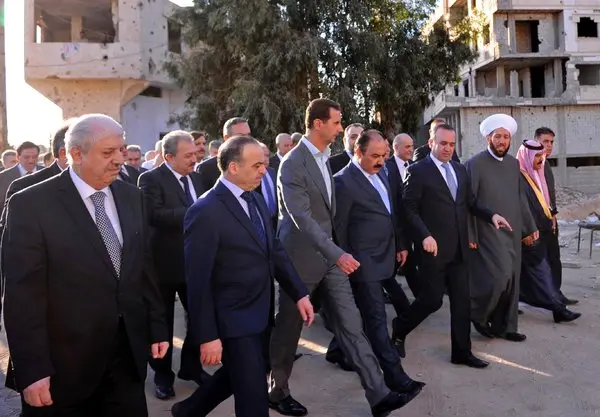
The illusion of Syrian President Bashar al-Assad’s firm grip on Syria is beginning to shatter. As key backers, including Russia, Iran, and Hezbollah, ease their support, the Syrian government finds itself in an increasingly precarious position. What once appeared to be an unshakable hold on power is now crumbling under shifting alliances and mounting international pressures.
Changing Dynamics in the Syrian Conflict
For years, the Assad regime has relied heavily on its alliance with Russia, Iran, and Hezbollah to maintain control over large parts of Syria. However, recent developments suggest that these relationships are no longer as stable as they once were. The strategic interests of Assad’s allies are diverging, and this has led to a gradual reduction in their military and economic support.
Russia’s Changing Priorities
Russia has been one of Assad’s most critical backers, providing military assistance and diplomatic support. Moscow’s intervention in 2015 was pivotal in turning the tide of the civil war in favor of Assad. However, in recent months, Russia has shown signs of reducing its engagement in Syria. With its focus shifting toward the war in Ukraine and other global priorities, Russia is gradually scaling back its military presence in the region.
This shift in Russian policy has left Assad vulnerable, as the regime loses one of its most powerful allies. Although Russia still maintains a strategic interest in Syria, particularly in controlling key military bases, its support for Assad appears to be waning.
Iran’s Strategic Withdrawal
Iran, another crucial ally of Assad, is also recalibrating its involvement in Syria. While Iran has been deeply invested in supporting the Assad regime, particularly through its military presence and backing of militia groups, its priorities are shifting. Tehran’s economic difficulties and increasing international pressure have forced it to reassess its role in Syria.
Iran’s commitment to Assad is now being questioned, as it faces domestic challenges and broader regional dynamics. The country is also trying to balance its interests in Syria with its engagement in other parts of the Middle East, such as Iraq and Lebanon. As a result, Iran’s support for Assad may become more conditional, potentially weakening Assad’s grip on power.
Hezbollah’s Diminishing Role
Hezbollah, the Lebanese militant group that has been an ally of Assad since the early stages of the conflict, is also scaling back its involvement in Syria. Hezbollah’s fighters have played a crucial role in bolstering Assad’s forces, particularly in the battle for key regions. However, Hezbollah is now facing growing pressure from Israel and its domestic challenges in Lebanon. The group’s shifting priorities may lead to a reduced role in Syria, further eroding Assad’s control.
The withdrawal of Hezbollah forces from certain areas of Syria also indicates a broader regional shift. As Hezbollah refocuses on its operations in Lebanon and its rivalry with Israel, its ability to project power in Syria diminishes, leaving Assad with fewer resources to maintain control.
The Impact on Assad’s Future
With the combined withdrawal of Russian, Iranian, and Hezbollah support, Assad’s ability to govern effectively is in jeopardy. The loss of military backing and economic assistance puts immense pressure on the regime, which is already dealing with a fragile economy and widespread unrest. While Assad still controls the capital, Damascus, and key parts of the country, his authority is increasingly challenged by opposition forces and internal dissent.
The erosion of Assad’s support base could lead to instability in Syria, as various factions vie for control. The potential for renewed civil conflict remains high, especially as Assad’s allies reduce their involvement.
International Pressure Mounts
In addition to the shifting dynamics within Syria, Assad’s government faces growing international pressure. Western nations continue to impose sanctions, while regional actors such as Turkey and Saudi Arabia have shown increased willingness to challenge Assad’s legitimacy. This international isolation, combined with internal divisions, makes Assad’s position more vulnerable than ever before.
Conclusion
The illusion of Assad’s unchallenged control over Syria is unraveling. As Russia, Iran, and Hezbollah ease their support, the regime faces unprecedented challenges. The shifting alliances and the increasing pressure on Assad’s government suggest that his days in power may be numbered. While the future of Syria remains uncertain, one thing is clear: Assad’s grip on power is slipping, and the balance of power in the region is shifting.





